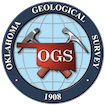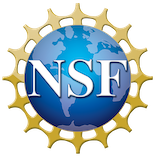Atmospheric carbon reduction: exploring solutions through science and societal innovative approaches - an NSF-funded Convergence Accelerator Workshop - Join us to Jumpstart the Discussion
A Workshop to identify opportunities to expand capacity from an engineering and geoscience perspective
We met for 3-days to develop novel cross-disciplinary collaborations!
The resultant white paper can be accessed here: https://www.carbonworkshop.org/carbon_reducing_white_paper.pdf
Overview
Ongoing science and technology efforts aim to achieve the needed reduction of atmospheric carbon by injection into site-specific reservoirs, with clear metrics for storage and leakage. These experiments have been accompanied by abundant modeling and analysis of the geologic reservoir system from the pore scale to the field scale, and attention to concerns surrounding induced seismicity. Meanwhile, geographic, social science, and economic analyses have progressed to the point where models can predict the cost returns under 45Q, and debate the relative merits of any geoengineering solution to the climate crisis. This workshop aims to bridge these highly disparate communities in a discussion that we hope will frame a real-world paradigm shift where carbon can be actively reduced in a way that blends science and technology with broader national and global views of the atmospheric carbon dilemma. Through the technologies that enhance the reduction of atmospheric CO2, new economic opportunities and new jobs would be realized to support this shift. This interactive workshop provides a rare opportunity for the scientists, industry, government, and the general public to chart out this future.
Date and Location
The event was held online from 12:00- 3:00 PM EST, and took place on September 28th, October 1st and October 6th
Motivation: The industry challenge and academic technology transfer
What are feasible carbon capture approaches? What are the technological challenges of each of them? What are the ways to employ geological and geophysical knowledge and expertise? How can we use CCS expertise from large site-specific experiments in other approaches? What are the unintended consequences in terms of earthquakes, groundwater response, and leakage?
Motivation: What are the community needs, perceptions, and involvement?
How can a wider group of citizens become partners in the effort of carbon capture? How can we gauge public perception? What are strategies and tools that people want?
Motivation: Building collaborations that eliminate workforce/disciplinary silos
What types of businesses and policy-makers can be entrained in this effort? How can we best use the existing energy infrastructure and legacy data on carbon reduction efforts? What is the key to a responsible public-private partnership?
The Specific Challenges
During the Jumpstart, we will be splitting into breakout groups consisting of experts from various disparate fields and the workshop organizers will be responsive to all discussions in the breakout virtual rooms. While the scope is expansive, we expect that the rooms might cover topics such as:
Reducing carbon in a world with infrastructure as it exists now
- Post-combustion - What are proven technologies for post-combustion carbon capture at industrial point-sources? Are conventional chemical scrubbers the most effective technologies?
- Pre-combustion - Can carbon be removed or reduced prior to combustion in an economical way? How does coal gasification become economically feasible in a world of cheap natural gas? Can combustion be controlled so that it is more cost-effective to remove carbon from flue gases?
- Replacing the fuels we use today - Can biofuels (including use of net carbon-negative fuels generated from plants bioengineered to take up carbon) be realized on a large-scale?
Storage and utilization of carbon
- Utilization - What are the future avenues for enhanced oil recovery (EOR) technologies to be widely-adopted?
- Storage - If carbon is deemed for long-term storage, what are the potential target formations and capacities for storage?
Geology of carbon storage
- Subsurface storage equipment - Can the existing oilfield (pipelines, wells, workforce) reverse direction and massively store carbon?
- Subsurface storage geology - What are the geological parameters for CCUS for the short term, medium term, and geologic long term?
- Risks of subsurface storage - What is the century-scale risk landscape for broadly distributed storage in depleted hydrocarbon and saline reservoirs when considering the possibility of contaminated groundwater aquifers or the potential to induce earthquakes?
- Monitoring of the subsurface - Can monitoring be enhanced with machine learning/artificial intelligence?
Removing carbon
- Removing carbon from the atmosphere - How does direct air capture R&D scale up, especially in competition with capture at carbon sources?
- Land use changes and reforestation/restoration of degraded ecosystems (forests, wetlands, etc.) - How do the costs/ton compare to industrial projects?
- Altering agricultural practices - e.g. no-till farming
Policy
- Tax incentives - Are current tax credits (i.e. 45Q tax credit) going to spur an expansion of carbon utilization and/or storage?
- Future policy - Does cap-and-trade create a stronger market for carbon removal and subsequent storage?
Who Should Apply
We encourage a wide representation of participation spanning research, government, industry and public policy sectors. All levels of seniority with diverse expertise across the continuum of carbon capture research and complementary fields including, but not limited to: geophyscis, seismology, geology, reservoir engineering, chemical engineering, sociology, political theory, biofuels, plant bioengineering, data science, mathematics, and backyard citizen scientists to consider how your experience could help shape and transform the future of carbon sustainability research technologies.
Irrespective of expertise, we are most interested in new, innovative ideas and original thinking that arise from new collaborations between people of diverse backgrounds and varying expertise.
Approximately 100 applicants will be selected to participate in the Jumpstart on the basis of the interests, expertise, and other characteristics solicited in the application. Most participants are expected to be academic faculty, from early career to senior investigators. Original thinkers from outside academia (e.g., industry, public sector) or earlier career stages are also encouraged to apply. When selecting participants, consideration will be given to balance across a range of diverse disciplinary experience and expertise. All participants should be willing to engage in frank disclosure and assessment of ideas in a collegial and professional fashion. To facilitate open sharing, all meeting discussions will be considered a private communication and not to be shared outside of the meeting, unless approved by the contributor. All research-related application information will be kept confidential.
The Organizing Committee
- Jake Walter
- Abbas Seyedolali
- Nick Hayman
- David Brown
- Molly Yunker
What to Expect
The Jumpstart will be facilitated by Knowinnovation (KI), a company dedicated to accelerating scientific innovation. KI’s virtual events offer just about all of the advantages of in-person events without the time and money associated with travel. These are interactive and should not be confused with webinars. You should expect highly interactive sessions and a facilitation team to be flexible to the conversations and needs of the room. (Apologies in advance, you will not be able to grade papers while you participate ;)).
Session 1: September 28
- Welcome
- Speed Networking
- Break & Solo Reflection
- Small Group Stewarding
- Closing & Next Steps
Session 2: October 1
- Welcome
- Small group back casting of big ideas
- Break & Solo Reflection
- Report back
- Closing & Next Steps
Session 3: October 6
- Welcome
- World Cafe
- Break & Solo Reflection
- Report back
- Closing & Next Steps

